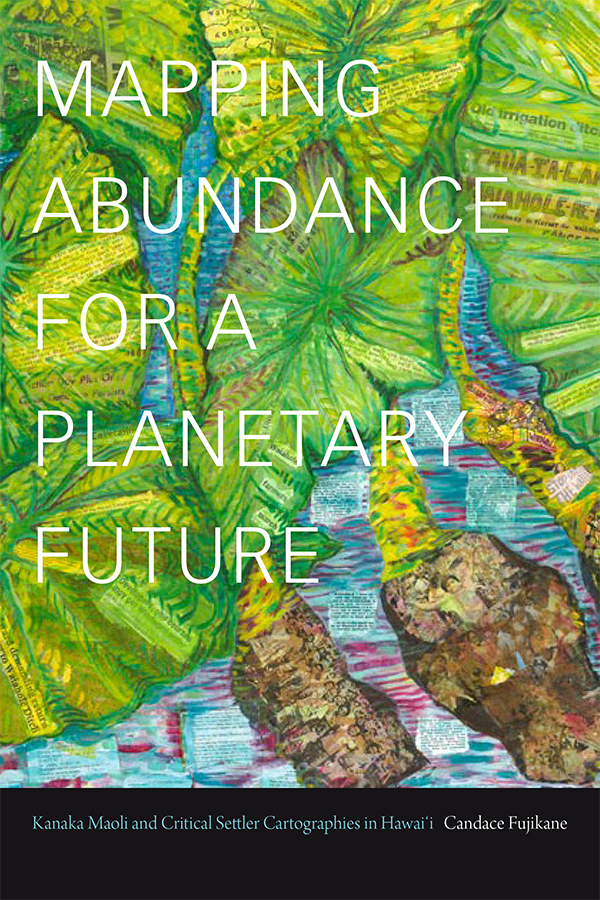Jamaica Heolimeleikalani Osorio foregrounds the intimate in aloha ʻāina, a Kanaka Maoli conception of caring for land, or that which feeds. She provides a close reading of the classic Hawaiian epic Hiʻiakaikapoliopele alongside contemporary Kanaka Maoli battles with settler colonialism and heteropatriarchy. Osorio engages the uniquely Kanaka Maoli genre of moʻolelo by modulating seamlessly between the interpersonal and structural, analysis and composition, and the nineteenth century and the present day.
Keyword: Hawai`i
Review of Mapping Abundance for a Planetary Future: Kanaka Maoli and Critical Settler Cartographies in Hawaiʻi by Candace Fujikane (Duke University Press)
Employing the teachings of Indigenous cartographic practices to trouble the Western epistemologies of subdivision that underpin private property development, Candace Fujikane’s Mapping Abundance for a Planetary Future charts out an unabashedly hopeful vision for futures that exceed the dictates of capitalist accumulation. Abundance, as Fujikane shows throughout, is not an ungrounded future wish, or a hazily-defined otherwise that we must collectively imagine. It has already been mapped out for us by Indigenous peoples—in her example, Kanaka Maoli—who have long thrived according to fundamental philosophies of cultivation and relationality.
Review of Possessing Polynesians: The Science of Settler Colonial Whiteness in Hawai`i and Oceania by Maile Arvin (Duke University Press)
Arvin explains how dispossessing Polynesians was predicated on a logic of settler colonialism inflected by white supremacy. Casting Polynesians as white—specifically, as “almost white”—as opposed to distancing Polynesians from Caucasians, simultaneously provided white settlers the justification they needed to occupy large swaths of Oceania and precluded Polynesians from enjoying the full set of rights available to non-almost whites. By establishing a clear racial continuity between settlers and Polynesians, possession through whiteness made whiteness indigenous to the islands; doing so “suited [settlers’] own claims of belonging to Polynesia while [also soothing] colonizers’ racial anxieties about those they dispossessed.” Throughout the book, Arvin argues that anti-Blackness was as pronounced and as integral in possessing Polynesians as whiteness and calls for future research that more centrally examines the specific and nuanced functions of whiteness, Blackness, and Indigeneity in Melanesian and Micronesian contexts.


